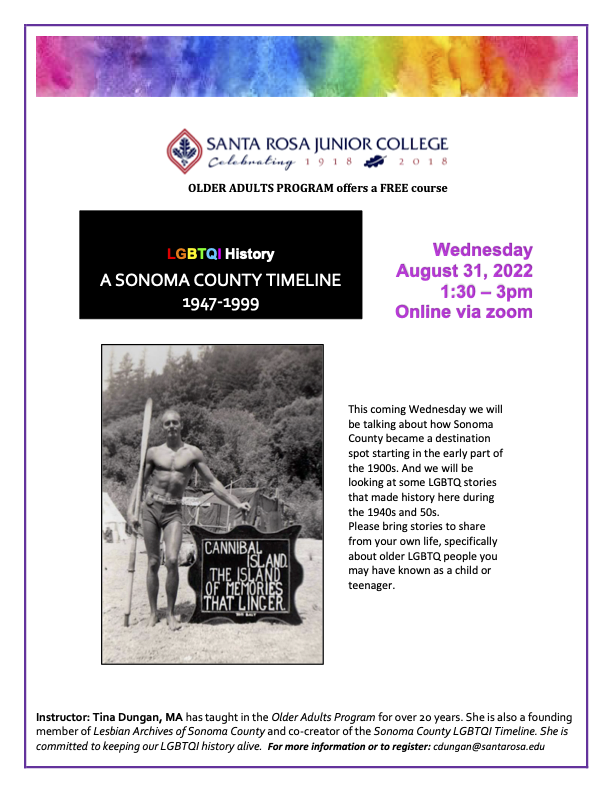PASOLINI 100: Homage to Pier Paolo Pasolini to Include His Films and the New Biopic “Pasolini” September 10 at The Castro Theatre
The Italian Cultural Institute, Cinema Italia San Francisco In collaboration with Artistic Soul Association under the auspices of the Consul General of Italy in San Francisco
Present PASOLINI 100: Homage to Pier Paolo Pasolini On the 100 year anniversary of his birth Saturday, September 10, at the Castro Theatre 429 Castro Street San Francisco, CA
This Special Homage to Pasolini, who pushed the boundaries of politics, art and sexuality, follows the complete retrospective that Cinecittà premiered at the Academy Museum of Motion Pictures in Los Angeles on the occasion of the 100th Anniversary of Pasolini’s birth.
San Francisco will pay homage to the great Maestro with a selection of his works on September 10 at the Castro Theatre. This is Cinema Italia San Francisco’s 11th program of classic Italian cinema.
10:30am Pasolini
Director: Abel Ferrara, 2014, 84 min., DCP, Color, Italy, Belgium France. DCP by Kino Lorber.
Cast: Willem Dafoe, Ninetto Davoli, Valerio Mastandrea, Riccardo Scamarcio
Willem Dafoe stars in Abel Ferrara’s dramatic English-language film Pasolini, about the mysterious final days of the renowned Italian film director Pier Paolo Pasolini. This haunting biopic draws on Pasolini’s last interview and scenes from his unfinished novel Petrolio, which imagine Pasolini’s muse Ninetto Davoli returning to “finish” the unfinished work, in a final act of love. Dafoe’s charisma shines as he embodies the intellect and passion of the murdered director. The film, written by Maurizio Braucci, was selected to compete for the Golden Lion at the 71st Venice International Film Festival and screened in the Special Presentations section of the 2014 Toronto International Film Festival.
12:30pm Mamma Roma
Director: Pier Paolo Pasolini, 1962, 107 min., 35mm, B&W, Italy. Distr. Janus Film. Print from Cinecittà.
Cast: Anna Magnani, Ettore Garofolo, Franco Citti, Silvana Corsini
Mamma Roma is Pasolini’s second feature and is among Pasolini’s most audaciously shaped and satisfying movies. The immortal Anna Magnani is equally vulnerable and volcanic as the titular character in Pasolini’s gritty tale of a mother determined to rise above poverty. The writer-director returns to the desolate outskirts of Rome for this tale of doomed maternal love set against a stark backdrop of ancient ruins and prefab apartment blocks. Former prostitute Mamma Roma is trying to start a fresh life in a new flat with her teenage son. But the criminal underworld she thought she had escaped slowly pulls her back into its vortex.
3:00pm Accattone
Director: Pier Paolo Pasolini, 1961, 117 min., 4K DCP restoration, B&W, Italy. Distr. Janus Restored by Cinecittà with Cineteca di Bologna and The Film Foundation in collaboration with Compass Film. Restoration funding provided by the Hobson/Lucas Family Foundation.
Cast: Franco Citti, Franca Pasut, Silvana Corsini, Paola Guidi
After writing a pair of novels, Ragazzi di Vita and Una Vita Violenta, set in the urban periphery of Rome, Pasolini decided to turn to cinema to continue exploring this world and its characters. Accattone is the nickname of Vittorio—played by non professional Franco Citti, a soon to be Pasolini regular—a young loafer roaming the hardscrabble Roman slum of Pigneto who fancies himself a pimp. The desperation of Vittorio’s sun-baked world is intensified by Tonino Delli Colli’s crisp cinematography and the strains of Bach’s St. Matthew Passion. One of cinema’s great debuts, Accattone reimagines Neorealism by eschewing any sentimentality for the poetry of the everyday.
6:00pm Medea
Director: Pier Paolo Pasolini, 1969, 110 min., 35mm, Color, Italy/France/West Germany. Distr. Unzero Print from Cinecittà. Restored by Cinecittà and S.N.C. in 2012 in its original 35mm format with the support of Gucci.
Cast: Maria Callas, Massimo Girotti, Laurent Terzieff, Giuseppe Gentile
In Medea, Greek American soprano Maria Callas stars in a rare non-opera role as the title character in Pasolini’s haunting adaptation of the tragedy by Euripides, about a woman scorned by her husband (Jason of the Argonauts) who avenges herself with fierce abandon. The film is also ravishing in its visual imagery—Medea was shot on location in ancient sites of Italy, Turkey, and Syria, including the Citadel of Aleppo. British film critic Tony Rayns called this stunning portrait of a woman pushed to the brink, “a love song to Maria Callas.”
8:00pm-10:00pm La Roma di Pasolini
Mezzanine Reception
Rudy of C’era una Volta restaurant will re-create the Roman atmosphere for selected guests in the Castro Mezzanine.
10:00PM Salò or the 120 days of Sodom 116 min
Director: Pier Paolo Pasolini, 1976, 116 min., 35mm., Color, Italy/France. Distr. Park Circus Print from Cinecittá.
Cast: Paolo Bonacelli, Giorgio Cataldi. Umberto P.Quintavalle, Aldo Valletti
Pasolini’s infamous final film transposes the Marquis de Sade’s 18th century treatise on torture to Mussolini’s Italy circa 1944. A group of representatives of the wealthy upper classes—a Duke, a Bishop, a Magistrate, and naturally, the President—have holed themselves up in a palatial estate in the titular city of Salò, where they have imprisoned a horde of young men and women to torment for their pleasure. Salò, a town in Northern Italy, was briefly made the capital under Benito Mussolini’s Fascist government in 1943-1945. The story, rife with political implications, is in four segments, inspired by Dante‘s Divine Comedy. Pasolini’s controversial masterpiece makes disturbingly literal the way the rich exploit the poor. Salò descends into the abyss until not a fleck of light remains.
(Viewer discretion is strongly advised)
Ticket Prices & Info:
Single screenings: $15 per admission
Seniors, Students and IIC members: $12
Reception: $35 per admission
Festival Pass (all films + reception): $80 per pass
Vaccination proof & ID are required
Advance tickets can be purchased via www.cinemaitaliasf.com on June 10, 2022, or by calling Box Cubed at 415-552-5580.
About Pier Paolo Pasolini
Pier Paolo Pasolini was a filmmaker, poet, novelist, journalist, Marxist, and gay man. His work reflects post WWII Italian society in upheaval and questions power structures, political and sexual mores. Pasolini passionately fought again government corruption, materialism, and social repression. The son of a Fascist army officer, Pasolini films unrelenting examine the Fascist experiment in Italy, the fervor of nationalism, and the disdain of the rich for the poor. His films also celebrate (without fetishizing) the lives of Italy’s working poor, including everyday citizens as well as hustlers and prostitutes.
Pasolini’s early literary work attempted to resolve his Christian and Marxist ideologies. His first novel, Ragazzi di Vita (1955), on which his film Accattone is loosely based, featured a protagonist who is a young street hustler. The book caused obscenity charges to be filed against Pasolini, the first of many instances in which his art led him to interact with the legal system.
A prominent player in the post WWII cultural scene in Rome, Pasolini was part of a coterie of talented artists, including writer Alberto Moravia, writer Elsa Morante and was friends with opera star Maria Callas, who he cast in her only film appearance in Medea. His decision, long before the modern LGBTQ rights movement, to make his own homosexuality the subject of his poetry and novels was, at the time, scandalous.
CinemaItaliaSF is proud to present a range of his work, from the sublime to the difficult, in the spirit of the freedom of expression that Pasolini passionately espoused. We are thrilled that this Homage, on the 100 anniversary of Pasolini’s birth, serendipitously coincides with the 100th anniversary of the Castro Theatre, an architectural jewel in the heart of San Francisco’s LGBTQ neighborhood.
“Though he was a filmmaker for just over a decade, Pasolini’s impact on cinema is profound. An openly gay man and outspoken critic of capitalism and Europe’s bourgeois establishment, Pasolini remained in the crosshairs of the elite for his entire career, which ended tragically when he was murdered weeks before the premiere of his most incendiary condemnation of the upper classes: Salò, or the 120 Days of Sodom. He was 53 years old.
Presented almost in preserved 35mm prints, realized by Cinecittà and Cineteca di Bologna, this small selection of movies traverses Pasolini’s main periods: his reinvention of Italian Neorealism as a potently lyrical vehicle for devastating portraits of modern life (Accattone, Mamma Roma); his searing portraits of the depravity of European society and his shocking one-two punch of the celebratory Trilogy of Life, a celebration of the primal pleasures of sex set in antiquity, and its antithesis, the devastatingly bleak World War II horror show Salò.”
—B. Rondeau, senior director, film programs, Academy Museum of Motion Pictures
Presenting Organizations:
Cinecittà
Established in May 2010, following the merger of Cinecittà Holding and Istituto Luce (founded in 1924), Cinecittà is the public service branch of the Italian Ministry of Cultural Heritage and Activities and Tourism with the aim of promoting classic and contemporary Italian cinema worldwide, through traveling programs in major international institutions. Such programs include: film retrospectives of Italy’s most prominent directors and actors, art and photographic exhibitions, books presentations, support in the selection of Italian films at film festivals, and the participation of Italian talents attending international events. It is also home of Cinecittà Studios. www.Cinecitta.com
The Italian Cultural Institute of San Francisco
The Italian Cultural Institute promotes Italian language, culture, and the best of Italy by offering information about Italy, scholarships, and cultural events, such as: art exhibits, film screenings, concerts, and lectures. The Institute’s goal is to foster mutual understanding and cultural cooperation between Italy and the United States. www.iicsanfrancisco.esteri.it
Cinema Italia San Francisco
Founded in 2013, Cinema Italia SF is an organization that operates in San Francisco bringing to major screens the best of Italian Cinema. This will be the 11th program organized by CISF in the Bay Area: Pasolini (2013), Bertolucci (2014), De Sica (2015), Magnani (2016), Dino Risi and Lina Wertmüller (2017), Michelangelo Antonioni, Marcello Mastroianni (2018) Ugo Tognazzi ( 2019) and Fellini 100 ( 2020). Cinema Italia San Francisco is a member of Intersection for the Arts, which provides fiscal sponsorship, incubation and consulting to artists. www.CinemaItaliaSF.com
Artistic Soul Association
The Artistic Soul Association was founded in 1995 by Loredana Commonara, a professional in the film and audiovisual sector. Artistic Soul Association’s activities include the production and organization of short films and international festivals in Italy (Ventotene Film Festival) and the promotion of contemporary Italian cinema and audiovisual in New York (Italy on Screen Today-New York Film & Tv Series Fest). The initiatives produced by the association are realized thanks to the Italian Ministry of Culture and the Italian Cultural Institutes, in collaboration with the Parliament, the European Commission, and many prestigious Italian and international Universities. www.ventotenefilmfestival.com – italyonscreentoday.it
Facebook: CinemaItaliaSF
Twitter: CinemaItaliaSF
Instagram: cinemaitaliasf
Website: www.cinemaitaliasf.com















